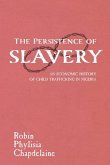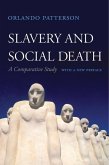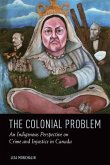The classic and groundbreaking study of penal slavery throughout the ages is finally available again. Previously a rare book - despite the fact that it is widely quoted and cited by scholars in the field of sociology, penology, and criminology - this book can now be accessed easily worldwide and be assigned again to classes. Now in its fortieth anniversary edition, Sellin's classic book adds a new Foreword by Barry Krisberg at Berkeley, and incorporates changes the author originally planned for a second printing, provided to Quid Pro Books by the Special Collections Library at Penn. Part of the Classics of Law & Society Series from Quid Pro, this edition also includes explanatory Notes of the Series Editor by Steven Alan Childress at Tulane. The original printing's page numbers are inserted into the text, for continuity of referencing and convenience for classroom assignment. The book traces the direct and indirect influences of the social institution of chattel slavery on the evolution of penal systems and practices in Europe and the United States - a dismal story. The author reveals the darkest and most brutal aspects of penal history and the social forces that resisted or nullified the efforts of reformers who sought to bring about humanization of the punishment. The book shows that domestic punishments inflicted on slaves by masters later become legal punishments for crimes committed by low-class freemen - eventually to become legal sanctions against offenders regardless of social status. A dominant force is the class and caste structure of society that is reflected in the determination of what conduct should be defined as criminal, who should be punished, and what the punishment should be. Topics include ancient Greece and Rome, the Middle Ages in Europe, galley slaves and naval arsenal prisons in maritime countries, penal creation of public works, the rise of houses of correction, invention of the treadmill, practices in England and Russia, slavery in the antebellum South, and later U.S. chain gangs, penal farms, and convict-lease system. Also available in library-quality hardcover edition and in eBook formats.
Hinweis: Dieser Artikel kann nur an eine deutsche Lieferadresse ausgeliefert werden.
Hinweis: Dieser Artikel kann nur an eine deutsche Lieferadresse ausgeliefert werden.








